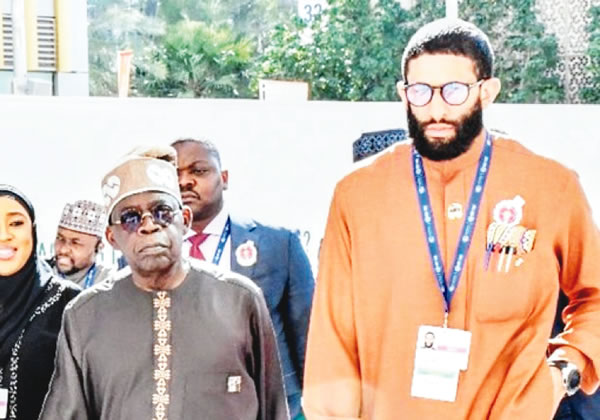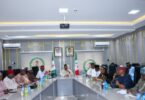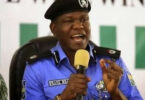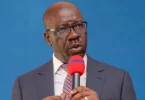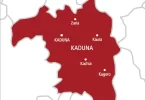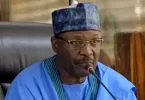LEON USIGBE delves into the distinct approach of Ajuri Ngelale, Special Adviser on Media and Publicity to President Bola Tinubu, and his role in reshaping presidential image management.
Ajuri Ngelale’s appointment as Special Adviser on Media and Publicity to President Bola Tinubu surprised many when it was announced. Before his name surfaced, the media and public had speculated about various potential candidates, but Ngelale was not among those considered. His unexpected selection marked the beginning of a significant shift in how the presidential image is managed in Nigeria. For over 16 months, Ngelale has led the president’s public relations efforts, bringing a fresh perspective and approach to the critical role of serving as the primary liaison between the president and the media.
In his capacity as Special Adviser, Ngelale is responsible for explaining and defending the president’s actions, policies, and positions on various issues. This includes issuing official statements, holding press briefings to provide updates, and making television appearances to answer questions and address concerns from the media. Transparency and communication are at the core of his duties, ensuring that the public remains informed about the administration’s activities. However, Ngelale’s approach to these responsibilities has been more than just meeting the standard expectations of his role; it represents a strategic departure from the methods of his predecessors, with a clear focus on reshaping the public’s perception of President Tinubu and garnering broader public support for his administration.
The role of a presidential spokesperson is inherently challenging. It requires balancing the demands of the president with the need to maintain a productive relationship with the media and, by extension, the public. In the past, some of Ngelale’s predecessors have been criticized for their handling of this delicate balance. They were often accused of adopting an arrogant style, prioritizing sycophancy over journalistic integrity, and responding to media inquiries with confrontational and dismissive attitudes. This approach inevitably led to a perception that these spokespeople were more interested in serving as partisan operatives than credible and transparent communicators.
In contrast, Ngelale has consciously avoided these pitfalls. Upon his assumption of office in August 2023, he made a public commitment to change the tone and approach of the presidential media office. He promised to end the era of government spokespeople speaking down to Nigerians or using condescending language. He emphasized that, regardless of political affiliations, all Nigerians love their country and deserve to be treated with respect by those in positions of authority. Ngelale pledged to work towards ensuring that the Nigerian media feels valued and has its rightful place in public life, with institutions being open and transparent in providing accurate and factual information to the public.
This commitment to respectful and transparent communication has been evident in Ngelale’s day-to-day operations. Observers have noted that his calm and decorous demeanor stands in stark contrast to the aggressive tactics employed by some of his predecessors. Instead of merely disseminating information, Ngelale has focused on enlightenment and fostering a better understanding between the government and the people. His approach is based on the principle that effective communication should build bridges, not walls, between the administration and the public.
However, Ngelale’s rise to this prominent position was not without its challenges. Some stakeholders initially expressed concerns about his background in television journalism, questioning whether it would adequately prepare him to engage with the complexities of Nigeria’s diverse and often critical print media. The ability to establish and maintain good relationships with members of the media is a crucial aspect of the presidential spokesperson’s job, and there were doubts about whether Ngelale’s experience would translate well into this role. However, these fears have largely proven unfounded. Ngelale has received praise for his ability to build and sustain positive relationships with journalists, demonstrating a commitment to professionalism, openness, and dialogue.
Within the presidential villa, Ngelale, who is possibly the youngest State House press secretary in Nigeria’s history, has made it a priority to respect the professionalism of the correspondents he interacts with. He is known for engaging in meaningful dialogue, providing detailed information, and offering clear and unambiguous responses to questions. His composed handling of tough questions and criticisms has helped to build a sense of trust, rather than fostering an adversarial relationship between him and the villa journalists. This approach has not only enhanced the quality of communication from the president’s office but has also contributed to a more positive public perception of the administration.
Ngelale’s respectful and polite demeanor, even under pressure or when facing difficult questions, has been a hallmark of his tenure. He maintains a professional tone at all times and has vowed not to show bias or favoritism towards any particular media outlets or journalists. This impartiality has been crucial in building his credibility as a spokesperson who is committed to fairness and transparency. So far, Ngelale has successfully combined strong communication skills, strategic thinking, and a deep understanding of both the administration’s policies and the broader media landscape.
The trust President Tinubu places in Ngelale is further demonstrated by his additional role as Special Presidential Envoy on Climate Action. In this capacity, Ngelale works within the presidential committee on climate and green economic solutions, coordinating and overseeing policies and programs related to climate action and green economic development. This additional responsibility underscores Ngelale’s importance within the administration and highlights his ability to manage complex and multifaceted issues.
Despite his efforts and the positive changes he has introduced, challenges remain. The working environment for the independent media in Nigeria is still affected by restrictions imposed during the previous administration. For instance, under President Muhammadu Buhari, physical access to many events was restricted, with only a few handpicked journalists allowed to attend. Additionally, private sector journalists, regardless of their seniority, were prohibited from driving into the villa premises, even when working late, on the pretext of limited parking space. Meanwhile, civil servants of lower ranks were allowed to drive in, which sent a message of disregard for the independent media. These restrictions, which have yet to be fully addressed, continue to hinder the ability of journalists to access information and provide comprehensive coverage.
Ngelale is aware of these challenges and has shown a commitment to improving the situation. He has made the welfare of journalists a priority and is working to create a more conducive environment for media professionals to perform their duties effectively. However, change in this area is likely to be gradual, and it remains to be seen how much progress can be made in overcoming the legacy of the past.
While Ngelale’s tenure as Special Adviser on Media and Publicity has not been without its challenges, his approach has brought a refreshing change to presidential media management in Nigeria. By emphasizing respect, transparency, and open communication, he has helped to improve the public perception of President Tinubu’s administration and has set a new standard for how the government interacts with the media and the public. His work continues to evolve, but the positive impact of his leadership is already evident. As he navigates the complexities of his role, Ngelale’s commitment to a different dimension of presidential media management offers a hopeful outlook for the future of government-media relations in Nigeria.
READ ALSO: Dangote refinery: No guarantee of lower fuel prices — NNPCL

